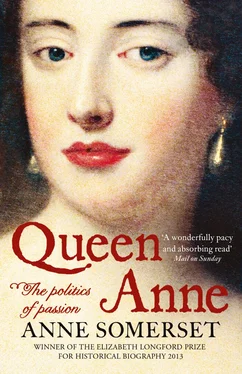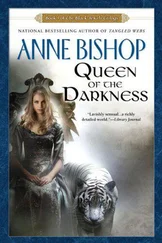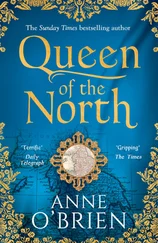The child was named Anne, after her mother, and if her birth was a disappointment, at least it did not cause the sort of furore that had greeted the appearance in the world of the Duke and Duchess of York’s firstborn child in 1660. That baby had initially been assumed to have been born out of wedlock, but when it emerged that the infant’s parents had in fact secretly married just before the child’s birth, there was fury that the Duke of York had matched himself with a loose woman who was not of royal blood. Many people shared the view expressed by the diarist Samuel Pepys ‘that he that doth get a wench with child and marries her afterward, it is as if a man should shit in his hat and then clap it upon his head’. 2
The scandal was particularly regrettable because the monarchy was fragile. Charles II had only been on his throne since May 1660, after an eleven-year interregnum. In 1649 his father, King Charles I, had been executed. This followed his defeat in a civil war that had started in 1642 when political and religious tensions had caused a total breakdown in relations between King and Parliament. During that conflict an estimated 190,000 people – nearly four percent of the population – had lost their lives in England and Wales alone; in Scotland and Ireland the proportion of inhabitants who perished was still higher. Charles I had been taken prisoner in 1646, but refused to come to terms with his opponents and so the war had continued. By 1648, however, the royalists had been vanquished. Angered at the way the King had prolonged the bloodshed, the leaders of the parliamentary forces brought him to trial and sentenced him to death. England became a republic ruled by a Lord Protector, Oliver Cromwell, and it seemed that its monarchy had been extinguished forever.
When the royalists’ principal stronghold of Oxford had fallen in the summer of 1646, Charles I’s twelve-year-old son, James, Duke of York, had been taken into the custody of Parliament. However, in April 1648 he had managed to escape abroad, dressed as a girl. His older brother Charles was already on the Continent, having been sent overseas by their father two years earlier. James was only fourteen when news arrived that his father had been executed on 30 January 1649. In the ensuing decade all attempts to place Charles on his late father’s throne failed, and a lifetime in exile appeared inevitable for the royal brothers.
In 1656 James spent some time at the French court. While there, he met with his elder sister Mary, widow of the Dutch prince, William II of Orange, who was visiting Paris, accompanied by her maid of honour, Anne Hyde. Anne was the daughter of Edward Hyde, a pompous and severe lawyer from Wiltshire who had become a leading adviser to Charles I shortly before the outbreak of civil war. After his master’s execution, he offered his services to the late King’s eldest son, now styled Charles II by his adherents. Hyde moved his family to Holland and in 1653 they took up residence at Breda at the invitation of the widowed Mary of Orange, who bore the title Princess Royal of England. Two years later the Princess suggested that Hyde’s eighteen-year-old daughter Anne should become one of her maids of honour. Hyde had been reluctant to accept her offer, partly because he feared angering the late King’s widow, Queen Henrietta Maria, who detested him. Finally he consented, whereupon the Queen Mother was duly incensed, little guessing that within a few years she would become more intimately connected to his daughter.
After their initial encounter, James had other opportunities to see Anne when he visited his sister at Breda. He was soon passionately attracted to her, for though Anne was ‘not absolutely a beauty … there was nobody at the court of Holland capable of putting her in the shade’. At this stage she had a ‘pretty good’ figure, and was also universally agreed to be exceptionally witty and intelligent. ‘Always of an amorous disposition’, James tried to seduce her, but she did not prove an easy conquest. Even after he had ‘for many months solicited Anne … in the way of marriage’, it was only after he formally contracted himself to her at Breda on 24 November 1659 that she let him sleep with her. 3
In the spring of 1660 royalist fortunes were suddenly transformed. Oliver Cromwell had died in September 1658, and over the next fifteen months England descended into near anarchy. In late April 1660 the chaotic situation was resolved when the English Parliament invited Charles II to return to England and assume the crown. On 25 May Charles – now King in more than name only – landed at Dover. Four days later he made a triumphant entry into London, accompanied by James, Duke of York.
Anne Hyde left the Princess Royal’s service and came back to England with her family. Her father was now the King’s chief minister, with the official position of Lord Chancellor. Unaware that Anne was pregnant by the Duke of York, he began making arrangements to wed her to a ‘well-bred hopeful young gentleman’, but before these came to fruition James went to the King and tearfully begged permission to marry Anne. ‘Much troubled’ by this development, Charles initially refused to authorise the union but ‘at last, after much importunity, consented’. On 3 September 1660 James and Anne Hyde were married at a private ceremony in the dead of night at Worcester House, the Lord Chancellor’s London residence. The only witnesses were James’s friend the Earl of Ossory and Anne Hyde’s maidservant, Ellen Stroud. 4
Anne was now in the advanced stages of pregnancy, but curiously her father had failed to notice this. He was therefore shocked and appalled when the King alerted him to the fact that his daughter was expecting the Duke of York’s child and had married without his knowledge. Hyde demanded that Anne should be ‘sent to the Tower … and then that an act of Parliament should be immediately passed for the cutting off her head’, and was surprised when the King demurred. 5However, although Charles told Hyde that he was sure the marriage could not be undone, the union was still not officially acknowledged. Anne continued to await her baby at her father’s house, where she was kept confined to her room.
Towards the end of September the Princess Royal arrived in England, enraged by the prospect of having her former servant for a sister-in-law. Unnerved by this, James’s commitment to Anne began to waver. He now accepted that he had been imprudent to pledge himself so precipitately, and instead of the marriage being publicly proclaimed ‘there grew to be a great silence in that affair’. James’s doubts became more pronounced when members of his court started to suggest that Anne was a woman of bad character. His best friend Sir Charles Berkeley claimed ‘that he and others have lain with her often’, and another young man testified that once, when riding pillion behind him, ‘she rid with her hand on his ———’.
An assortment of courtiers provided additional explicit details of alleged trysts with Anne during her time in Holland. Richard Talbot claimed to have had an assignation with her in her father’s study, recalling that as he was fondling her on the desk a bottle of ink had overturned, causing an appalling mess. Later the pair of them had artfully put the blame on the King’s pet monkey. After hearing such stories the French ambassador declared it ‘as clear as day that she has had other lovers’, and James too apparently became convinced of this. On 10 October the Duke informed Hyde ‘that he had learned things about his daughter which he could not say to him’, and that consequently he had decided never to see her again. 6
On 22 October Anne went into labour at Worcester House, and the King sent four high ranking court ladies and four bishops to witness the birth. The Bishop of Winchester interrogated the poor young woman, demanding to know who the father was, and whether Anne had slept with more than one man. Between contractions Anne gasped out that James was the father, that she had never had another lover, and that she and the Duke of York were lawfully married. 7After Anne gave birth to a son the ladies present declared they were sure she had spoken the truth, but James still declined to own the child.
Читать дальше












